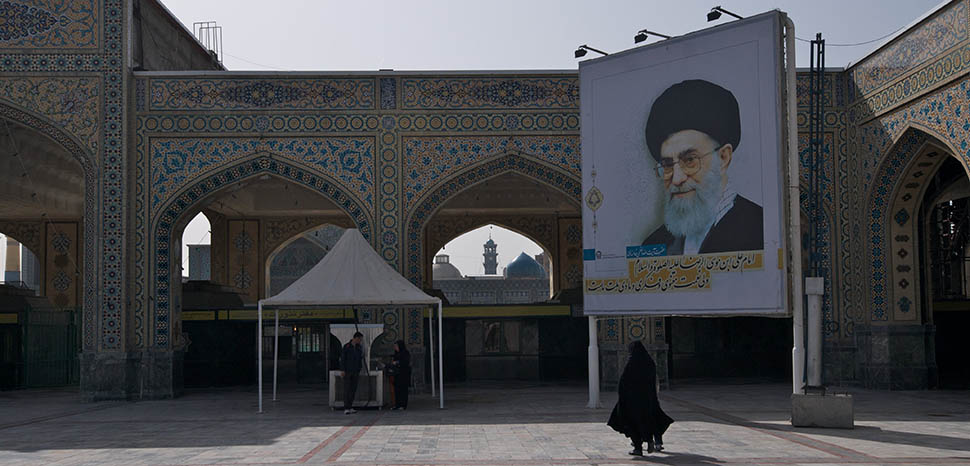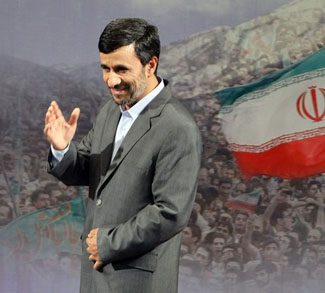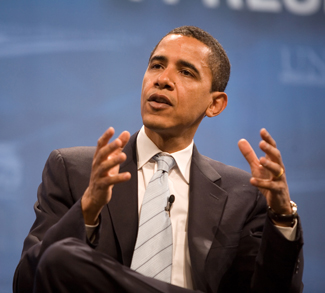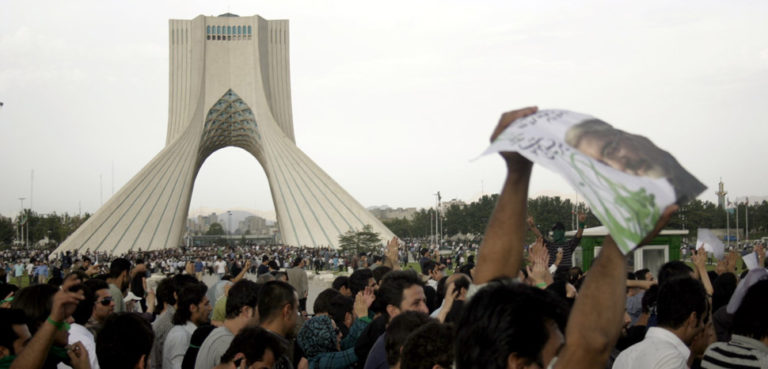With Iran’s current geopolitical positioning, its upcoming leadership changes, and Mojtaba Khamenei’s potential for power, it is clear that by deft footwork on the part of the Khamenei family, Persia may be reborn to take its historical place of power within the Middle East. This will depend deeply on Iran’s ability to reposition itself on the global stage, its ability to make friends out of enemies, and Iran’s willingness to confront its international fake-friends. By properly setting the stage for his son Mojtaba, The Supreme Leader Ayatollah Khamenei may allow for a rebirth of Persian culture that will provide prosperity for its people and the region for centuries to come. It all comes down to one question though: does Mojtaba, the Prince of Persia, have what it takes to save his people, his heritage, his land, and his family name? Can Mojtaba be the Philosopher King that his nation so strongly needs? Can he free his people from his government’s history of suppression? Can the Prince of Persia reverse the sands of time?
Eastern Challenges
Once upon a time, Russia did indeed support removing sanctions on Iran. However, after Russia came under intense sanctions itself, it no longer made geoeconomic sense for Russia to continue that support, as once Iran is free to operate with equal access to the global market then it will significantly impact Russia’s strength in oil markets – Russia’s primary money-maker. Russia furthermore has opposing interests with Iran in the Caucasus and Central Asian regions, as Iranian growth in both areas would limit Russian opportunities. All in all, Russia will only ‘allow’ for Iranian growth that is proportional to Russian strength. Due to this, Russia is in many ways the largest detriment to Iran’s success on the global stage.
China has taken the opportunity of Iranian banks being depleted to create one-sided partnerships that translate in the real world into Chinese domination of Iran’s banking sector. This is a deal that was not made in good faith. Iran has the capability to become a powerful nation once more, which would block China’s Western growth potential, as Iran would stand sovereign, or in China’s perspective, stand in the way of China’s path. This is unacceptable in China’s view, and the opportunity to take over Iran’s financial system is seen as a way to stabilize China’s power over Iranian territory.
Western Opportunities
The EU has interests in further developing strong ties with Iran. EU-Iranian trade growth helps to increase cultural likeness between the two parties, reducing tension over time and in turn reduce the EU’s long-term military budget expectations. Furthermore, Iran helps the EU balance European and American interests in the Middle East, giving the EU more leverage across the entire region by being either direct friends or ‘friends of a friend’ with all nations there. EU-Iranian economic integration also lessens the chances of a regional war with other EU allies like Israel, a war that could cripple the global energy market even past current damage levels. Finally, the EU has time and time again expressed interest in mending relations between the US and Iran, which is key to Iran’s future growth options as well as a proper balancing tool to be used against Chinese and Russian interests in the region. Playing both sides is dangerous, yet simply having the ability to do so is certainly a strategic benefit.
The US is deeply tied into Israeli interests in the region, running counter to Iran. Less of this could be said with US-Saudi relations, as Saudi Arabia has removed its Western leaning facade in the last few months by heavily leaning East and massively damaging its Western ties. This is a key opportunity for Iran. If tensions can be lessened with Israel to a reasonable extent, there may be room over the next decade for Iran to replace Saudi Arabia as a key Western ally in the region.
Regional Issues
When politics is replaced by geopolitics, it is clear that Iran’s primary competitor in the region is not Israel, but Saudi Arabia. Religion, culture, economies, and government structure all clash between these long-lost brother-nations on opposing sides of the Persian Gulf. If Iran were to reposition itself as friendly to Israel & America, then Saudi Arabia will begin to find itself isolated through its own political machinations, lost in the desert, self-removed from those it used to call friends. Vulnerable.
Reaching further afield, there is not a soul in the world that cannot immediately see the hypocritical position that Iranian President Raisi has placed Iran in regarding Israel, Russia, and Ukraine. Raisi cannot claim that Israel has no right to be there, that it is an invader, complain of Palestinian deaths, and then openly support Russia bombing children in schools and women in hospitals in a land that it has no right to lay claim to. Ukrainian people are giving their lives to protect their homeland while Putin threatens to unleash global nuclear war if his military can’t ‘man up’ and finish the job he gave them. An immediate repositioning is needed or the Supreme Leader himself will have all claims of his religious morality be completely erased, whereas at the time of writing the fault can still be placed on the as of yet particularly incapable President Raisi.
Iran’s Solution
A rebalancing of Iran’s position on the global stage is needed to secure Iran’s best possible future, both for its ruling elites as well as its incredible people. Iran is currently the junior partner to the decaying imperialist empire that is Russia, and President Raisi is putting collars on Iran’s banks with a leash being held by China. Continuing along this path will be the end of Iranian sovereignty and will see the eventual dismemberment of Iran into its varying ethnic groups, of which Persians only account for around 50%.
High-value trade packages being signed with Europe, ASEAN, and Canada would be a fantastic and viable step in the right direction to increase relations with Israel and America. With appropriate Iranian diplomatic footwork and the strategic maneuvering that Ayatollah Khamenei is known for, a new Golden Age of Persian/Western relations could be achieved in 5-7 years. It is time to rip off the shackles that Iran’s senior partners have imposed on it. Ayatollah Khamenei, if taking the appropriate steps, could in his final years become an ever-lasting saint of the region by allowing Iran to stand its own ground in a truly morally just manner; not a defiant last stand, but rather standing up after laying sick for far too long.
Prince Of Persia, Mojtaba Khamenei
The facts are what they are. With no intent to disrespect cultural norms, and with the absolute intent of delivering a focused, crisp, realistic analysis on the matter, Iran’s Old Guard leadership is dying out. Ayatollah Khamenei is 83 years old with regular concerns about his state of health. It could be the case that he is here for another 17 years or more, but his functional ability to lead is non-competitive to his global peers and is in rapid decline.
On top of that, Ahmad Jannati, the man that has been in charge of choosing the next Supreme Leader to replace Khamenei for the last 34 years, is himself now 95 years old. Undoubtedly Khamenei and Jannati will both replace each other with similar archetypes, yet no matter who goes first, the pair of them passing will mark the end of an era.
Iran does not need a leader that cannot move or think quickly, it needs a younger face, a fresh new start that can adapt to the nations pressing current needs and challenges. Saudi Arabia’s Mohammad Bin Salman is not going to be properly checked by an aged and ailing Supreme Leader, but he could be checkmated by Khamenei’s son Mojtaba, the Prince of Persia.
Mojtaba Khamenei is 53 years old, and while he technically isn’t supposed to take the reins next, his father also ‘broke the rules’ when he became Supreme Leader by lacking the experience needed by law. Mojtaba furthermore has been a frontrunner for years in terms of who is expected to take the Supreme Leader position next. If this does come to be true, then it will be a clear step towards the re-establishment of hereditary rulership in Persia, and through that, a clear step towards the re-establishment of Persia itself in its historical geopolitical position.
Mojtaba would be coming into power after his father with an option to the claim that God/Allah himself has given him the authority to rule, and that through that authority, he will rebuild Iran into its decolonized identity of Persia. Mojtaba has shown time and time again that he can, will, and does control many areas of Iran from the shadows including even Iranian State Intelligence. When his father does one day pass, and that shadow diminishes, Mojtaba will be able to step into the light and hopefully bring Iran with him.
This is Iran’s future and it all lies in the hands of one man, Mojtaba Khamenei. Will he fail and have Iran become just a province in Greater China, with its oil industry dependent on Russian goodwill? Or will Iran’s future Supreme Leader don a crown instead of a collar? Will the Prince of Persia stand up and hold his ground to return his people to the golden age they lost?
Expansion Goals
When it comes to Mojtaba’s options upon being ‘kinged,’ there are three primary areas that Persia will find success in: expansion, building tall, and an economic base change. When it comes to expansion, border changes would not be in Persia’s interest; ensuring that Azerbaijan, Turkmenistan, Afghanistan and Iraq all become junior partners to Persia will be key to Persian geopolitical success. Syria and Lebanon will need to be pulled out of in good faith to Turkey and Israel to establish regional peace. This will be an immense economic benefit to Persia, as Syria and Lebanon are both pulling the life out of Iran’s economy. A strong partnership will need to be developed with both Turkey and Israel to ensure continued Persian access to the Mediterranean. Finally, an alliance needs to be built and maintained with Pakistan, as they are currently in strong need of friends, they buffer Indian interests, and they can be used to block Chinese economic conquest in Iran’s direction.
Building tall is in reference to avoiding expansion, shunning protectionism, and focusing on heavy internal growth. Building tall is comparable to a bodybuilder/businessman at the gym who doesn’t care about what the Kardashians are doing; he only cares about his own health & wealth. Iran’s goal in this case is not to build Lebanon, but to build Iran. Iran would trade with everyone it can, aim to gain leverage over no one, and like Goku from the anime Dragon Ball, Iran would focus with positivity only on being the absolute best that it could possibly be. Deny your rivals the animosity you believe they seek, and you will be untouchable. Why build nukes when you can build an economy worth that of a global superpower?
Through building tall and focusing on developing junior partners rather than changing borders, Persia may become what Russia was so close to achieving before the failed Ukrainian invasion, a true alternative to global leadership. This approach is very much comparable to the approaches taken by the most successful nations in the world, including both America and Israel. Do not be afraid to emulate your competitors in areas they find success in, or your fear will forever limit your potential.
Last but not least, an economic base change from being a ‘resistance economy’ to a ‘sustainable knowledge economy’ will be key to Persia’s economic growth, state capabilities, regional sustainability, and to Persia’s shot at global leadership in the long run. Moving away from old energy sources that Russia will not let Persia dominate in anyways will only strengthen Persia’s position and will not damage the economies of its current allies. Russia would not be deeply opposed, and the West would be happy to finance such sustainable development with the appropriate reductions in tensions taking place as has repeatedly been made the case. There are many in the West who will not force policy changes to provide assistance to those who need it, and Persia’s diaspora would undoubtedly flock back to their homeland if they could proudly claim that it is one of the best nations in the world. Think of the capital, the manpower, the academic boost, the trade options. Sustainable development is key to Iran’s growth with the West, to its economic recovery, to its sovereignty, and to the transition into being Persia once more.
Looking Ahead
With Iran’s current positioning, its upcoming leadership changes, and the Prince of Persia’s potential, it is clear that by utilizing deft footwork on the part of the Khamenei family, Persia may be reborn to take its rightful place of power within the Middle East. This will depend deeply on Iran’s ability to reposition itself on the global stage, as it is through this strategic maneuvering that Iran can wiggle its way out of the Chinese finger-trap it has found itself in and find its way out of Russia’s dominance. The Supreme Leader, by setting the stage for his son, may allow for a rebirth of Persian culture that will provide prosperity for its people and the region for centuries to come. It all comes down to one question though: Does Mojtaba, the Prince of Persia, have what it takes to save his people, his heritage, his land, and his family name? Can he reform Iran from a theocratic totalitarian autocracy to a liberalized theocratic monarchy? Can the Prince of Persia reverse the sands of time?
The views expressed in this article belong to the authors alone and do not necessarily reflect those of Geopoliticalmonitor.com




